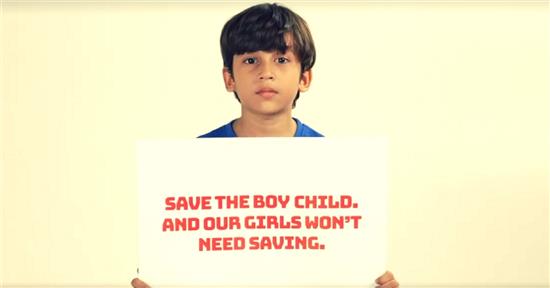
Save the Boys to Save the Girls
Do to others whatever you would have them to do to you. This is the Law and the prophets
(St Mt.7/12)
These days we are so disturbed with the heartbreaking news of inhuman and heinous acts at Unnao and Kathua and other parts of India. Jesus has given us the Law to prevent all kinds of atrocities against fellow beings which is known as the Golden Rule. Within the wider scenario of the “Golden Rule” a genuine question pops up: does anyone of these perpetrators be tolerant, silent or could accept if his mother, sister, daughter or even any relative had undergone such hideous experience? If ever they were aware of their relations within family, would they inflict such violence to any other daughter/sister/mother? Sexual objectification proliferates within our society and men, even boys are viscerally prone to criminally quench their hankering for sex.
It is heartening to know that an ordinance has been passed to allow the courts to award death penalty to those convicted of raping girls under 12 years. How far this would prevent the crimes against innocent children, one has to wait and see. The lawyers of Kathua district court had come out in to the streets in defense of one of the culprits. This is what would make an ordinary citizen skeptical about new ordinances and laws. Most cases of child abuse take place within our homes and in our neighbourhoods. Many cases are not reported because the rapists are often close relatives. The victims grow up with fear and shame if the parents are not reaching out to them.
After the Nirbhaya case, Laws have been changed. But mindsets have not. New laws have come in. But not implemented. In other words, nothing has changed. The diologue of Mr Amithab Bachchan in the movie PINK is most relevant in today’s Indian Society: “We should save our boys not our girls; because if we save our boys, our girls will also be saved”. From childhood itself boys are made stronger and girls weaker. Boys are brought up with superior nature and girls with inferiority. This has to be changed. Manhood is also about sensitivity and empathy. This is not possible without teaching boys decent social behaviour. It is not enough to save a girl at birth and educate her. Boys have to be taught the lessons of equality, that birth does not provide privileges for domination. We need to develop a consciousness in boys that the girls are not just their opposite gender. They are their sisters who are born with as much intellectual and emotional qualities as they are.
There are 3.8 billion men in the world and there is almost same number of women in the world. When we keep this statistic in mind then we have to wonder how effective can be the slogan Beti padhao Beti bachao, because our focus is only half of the world's population. The other half is young boys, young men, middle aged men and old men who are not being directly educated. In other words working only with girls and women and trying to educate them solves only half the problem. To aggravate the matter, the women population are deprived of proportionate distribution of wealth. When men form the half of the total population and indulge on the three quarters of wealth, they need to be educated the values of proper conducting and social empathy.
It is impossible to barter dignity for dignity, respect for respect and rights for rights unless one is able to switch from privileged gender discriminations to impartial rights. Only education can bring in the desired effect of a shifting from suppression to mutual encouragement. Beta Pathavo - the lessons of respect and dignity, is a strong means of fostering the grandeur of women. The basic human respect for one another should be inculcated in both boys and girls.
They should realize that women liberated shall contribute towards the flourishing of the world. Can our girl-children and women ever enjoy basic human rights unless we have gender-sensitized boys/men society? Our home should be the ground of learning the Golden Rule of egalitarian values, social sensitivity and empathy.
Sr. Talisha Nadukkudiyil SD
Secretary, CBCI Council for Women